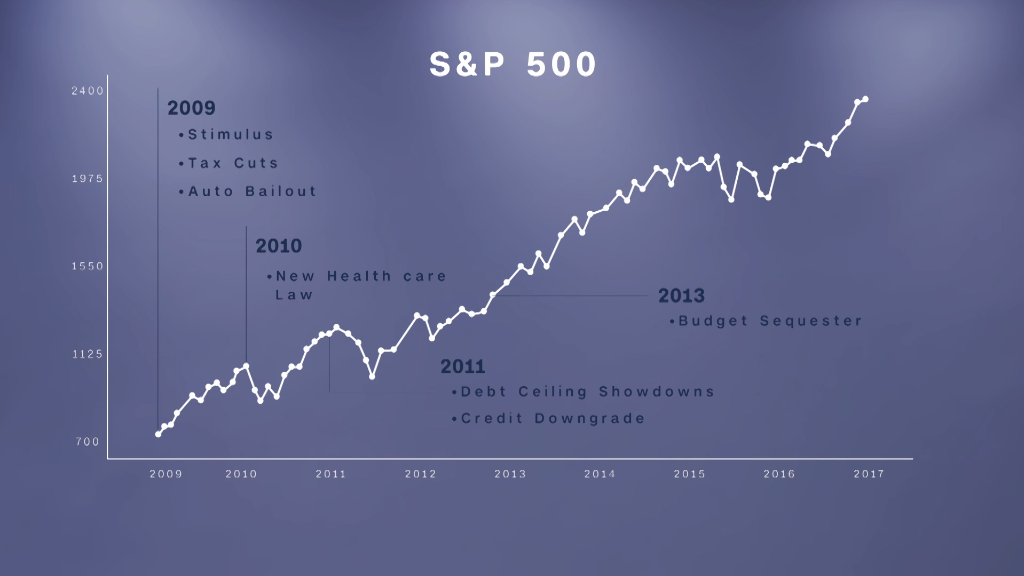
It looks like investors aren't so sure that President Donald Trump's pledge to "Make America Great Again" will really help the companies that do most of their business in the United States.
The Russell 2000 index -- which represents stocks of mostly smaller companies with domestically-focused businesses -- is flat so far this year.
Meanwhile, the Nasdaq -- home to large multinational tech companies like Apple (AAPL), Google-parent Alphabet (GOOGL), Microsoft (MSFT), Facebook (FB) and Amazon (AMZN) -- is up 9%.
The Dow Jones Industrial Average and S&P 500, which also include big, global focused U.S. firms, are each up 6%.
This wasn't supposed to happen.
The Russell 2000 enjoyed a ferocious rally after Trump's victory in November. Wall Street believed that his pro-growth policies would probably benefit smaller companies even more than large blue chips.
Related: The bull market turns 8
So what's changed?
The U.S. dollar has weakened a bit this year against other currencies. That isn't great for small stocks.
Smaller companies tend to benefit when the dollar is strong because it makes the cost of goods they import cheaper. They also don't export as much to overseas markets, so they aren't hurt as much as large multinationals when the dollar is strong.
The greenback had enjoyed a sharp rally after Trump defeated Hillary Clinton -- the thought being that he would be more inclined to pursue both domestic and foreign policies that would be more inward and protectionist.
But Trump told the Wall Street Journal days before his inauguration that the dollar was too strong.
That spooked investors, who suddenly realized that Trump's "America First" talk didn't just mean he wanted more companies to do business in the U.S. but that he also wanted to protect the interests of big U.S. companies who sell their goods internationally.
Related: Bill Gross says investors shouldn't be fooled by Trump mirage
The Federal Reserve could be an issue too. The strong jobs report on Friday has made a rate hike all but certain this Wednesday. Some experts are now wondering if the Fed could raise rates four times this year, more than expected just a few weeks ago.
If the Fed does boost rates more aggressively, that could potentially slow down the U.S. economy before it even gets a chance to really pick up steam -- regardless of what level of fiscal stimulus comes from Trump and the Republican Congress.
Of course, this could all just be a temporary blip in the market.
Smaller companies could resume their rally if Trump's economic policies turn out to be more isolationist, his $1 trillion in infrastructure spending promise passes Congress quickly and the Fed doesn't raise rates as dramatically as feared.
But for now, it appears that Wall Street is doubting whether Trump can truly give small businesses as much of a jolt as they once thought. And many investors are fond of saying that the trend is your friend. Don't fight it.
"When certain market metrics do not follow the desired script it is worth taking note," wrote Vincent Catalano, global macro strategist with Blue Marble Research, in a report Monday.


